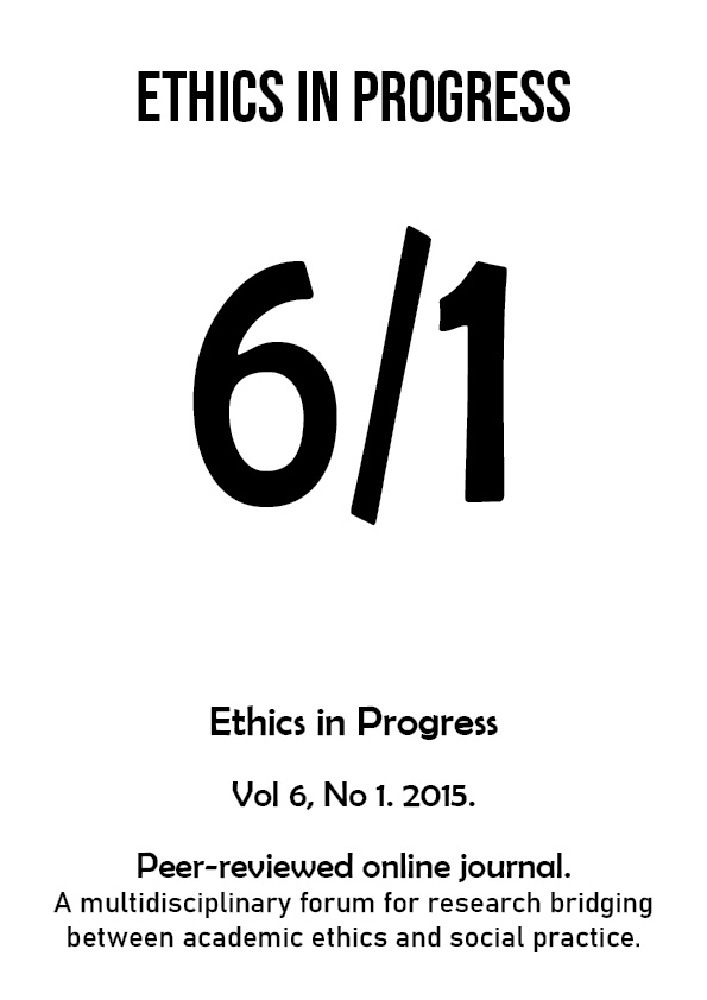Abstract
W niniejszym tekście skoncentrujemy się, wbrew obecnym trendom w literaturze przedmiotu, na jednej z rzadziej dyskutowanych pod kątem etycznym i społecznym postaci ulepszania natury ludzkiej, to jest na udoskonalaniu ludzkich możliwości przy pomocy innowacyjnych urządzeń technicznych. W kontekście interfejsów mózg-komputer przyjrzymy się najpierw działaniu i możliwościom, a następnie potencjalnym problemom związanym z jednym z ciekawszych wynalazków ostatnich lat – tzw. „inteligentnymi okularami”, których najbardziej znanym przykładem są Google Glass
References
Azuma, R. 1993. “Tracking Requirements for Augmented Reality.” Communications of the ACM 36(7): 50-51.
Buchanan, A. E. 2011. Beyong humanity? The Ethics of Biomedical Enhancement. Oxford: Oxford University Press.
Cosmides, L. & Tooby, J. 1992. “Cognitive Adaptations for Social Exchange.” W J. H. Barkow, L. Cosmides, J. Tooby (eds.), The Adapted Mind: Evolutionary Psychology and the Generation of Culture. New York: Oxford University Press: 163-228.
Dawkins, R. 1982. The Extended Phenotype. Oxford: Oxford University Press.
Dennett, D. C. 1995. Darwin’s Dangerous Idea: Evolution and the Meanings of Life. Harmondsworth: Penguin.
Fukuyama, F. 2004. Koniec człowieka: konsekwencje rewolucji biotechnologicznej. Tłum. B. Pietrzyk. Kraków: Znak.
Gould, S. J. 1996. The Mismeasure of Man. New York: W. W. Norton & Co.
Habermas, J. 2003. Przyszłość natury ludzkiej: czy zmierzamy do eugeniki liberalnej? Tłum. M. Łukasiewicz. Warszawa: Scholar.
Heyes, C. M. 2003. “Four Routes of Cognitive Evolution.” Psychological Review 110: 713-727.
Jebari, K. 2013. “Brain Machine Infterface and Human Ehhacement – an Ethical Review.” Neuroethics 6 (3): 617-625.
Jones, D. E. 2000. An Instinct for Dragons. New York: Routledge.
Lumsden, Ch. J. 1988. “Psychological Development: Epigenetic Rules and GeneCulture Coevolution.” W K. B. MacDonald (ed.), Sociobiological Perspectives on Human Development. New York: Springler–Verlag.
Rouse, R. A. 2012. Is Someone Watching You Through Your Webcam? A Study on the Awareness and Concern of Webcam Hacking. May 2012. Dostęp: http://www.campatch.com.
Rose, S., Lewontin, R. C., & Kamin, L. J. 1984. Not in Our Genes: Biology, Ideology and Human Nature. Harmondsworth: Penguin.
Sandel, M. 2014. Przeciwko udoskonaleniu człowieka. Etyka w czasach inżynierii genetycznej. Tłum. O. Siara. Warszawa: Kurhaus.
Song, C. et al. 2010. “Limits of Predictability in Human Mobility.” Science 327: 1018-1021.
Tooby, J. & Cosmides, L. 1990. “On the Universality of Human Nature and the Uniqueness of the Individual: The Role of Genetics and Adaptation.” Journal of Personality 58Ł 17-67.
Wilson, E. O. 1988. O naturze ludzkie. Tłum. B. Szacka. Warszawa: PIW.
Wilson, E. O. 2002. Konsiliencja. Jedność wiedzy. Tłum. J. Mikos, Warszawa: Zysk i S-ka.
Yung, K. et al. 2015. “Internet Addiction Disorder and Problematic Use of Google Glass in Patient Treated at a Residential Substance Abuse Treatment Program.” Addictive Behaviors 41: 58–60.




